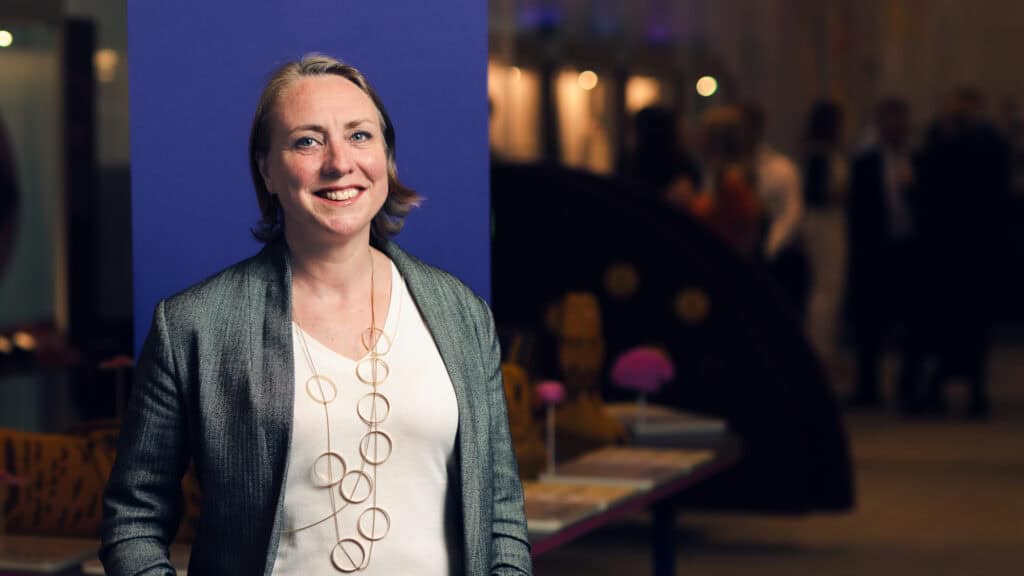CaSE was saddened to hear of the passing of Dr John Mulvey, one of the founding members of the Campaign for Science and Engineering.
CaSE remembers one of its founders Dr John Mulvey
19 Oct 2018
Dr John Mulvey played an instrumental role in the founding and early successes of CaSE.
Born in 1929, John obtained his PhD in Physics at the University of Bristol and went on to have a distinguished 32 year research career. Based largely at the University of Oxford, John also took placements around the world, including three years as Director of CERN in Geneva.
Frustrated by the cuts to science funding imposed by the Thatcher government in the 1980s, John became a founding member of CaSE, in its early incarnation as Save British Science (SBS), and spent much of his time lobbying politicians and businessmen. After retiring from the University of Oxford in 1990, John set up an office for SBS and ran the organisation full-time for eight years.
Co-founder Professor Denis Noble CBE remembers John’s efforts in those early years:
John helped me recruit the 1500 scientists who paid for The Times advert on the day of the launch of the Campaign in 1986. He then became its first Secretary. For many years John effectively ran SBS from his Oxford Office.
He was indefatigable in researching statistics and mining facts about science funding in the UK and internationally. During the first 15 years of the Campaign I was frequently called on by the media — Press, TV and Radio — to speak on behalf of the Campaign. I always did so armed with the data that John had carefully collected. It is on this basis that the Campaign earned the respect of successive science ministers. They learnt quite quickly that challenging our figures was not a good tactic.


Early SBS articles and press releases written by John Mulvey
John served as SBS Honorary Secretary from 1986 to 1990, before taking on the role of Executive Secretary and Director until his retirement in 1998. The following year he was presented with an honorary degree from UCL in recognition of all his work with Save British Science.

John was followed as Executive Director by Dr Peter Cotgreave, who recalls the impactful role John had on the organisation and himself:
One of John Mulvey’s favourite anecdotes was about visiting Sir Keith Joseph, the Education and Science Secretary in the 1980s, and being told that Britain was not the rich country it had once been and could “not afford” to spend money on science. John instinctively understood what a ridiculous statement this was, and that the country could ill afford not to invest in its future. Some of John’s colleagues later laughed about this absurd view, but John knew that the minster was clever and that people listened to him. If Keith Joseph was saying this, political attitudes needed deep-rooted change, and that meant concerted, targeted action over a sustained period.
As the first Secretary of what was then Save British Science, John Mulvey was at the fulcrum of creating that long-term effort not just to change the debate, but to turn it on its head. Failure to invest in science would not be the result of national poverty, it had the frightening potential to be its cause.
When I took over from John in 1998, he handed me a perfect jewel of an organisation that knew what it was for and did it with unbelievable effectiveness, especially given its tiny level of resourcing. Like John, I had previously been a research scientist. Policy work shares some characteristics with science, like the need for dogged persistence. Ministers and civil servants are constantly badgered by all and sundry, and their first reaction is to brush everyone off with platitudes. So is their second reaction and their third and fourth. Most people accept the warm words and give up, but John Mulvey kept going until the decision-makers actually listened. His capacity to identify and gain access to people of genuine influence was astonishing. On my first day in the job, the then Science Minister, John Battle, told me with unmistakable authenticity that I had my work cut out if I was going to measure up to the bar that John Mulvey had set.
But some aspects of policy are quite different from research. If you are doing an experiment and the samples need checking after four hours, then your timetable is immutable. But if you are working on a policy document and the minister’s office happens to phone, you have to switch your brain immediately to whatever is exercising them without getting blown off course and distracted from other tasks. John kept up his work rate by writing out a numbered list every morning of about ten things that had to be done by the end of the day, and then physically crossing them out as he went along. It’s a practice I copied and still use.
Looking back, I realise how generous John was to a youngster who knew and understood a tiny fraction of what he did. For well over a decade, he had been amassing knowledge and a network of contacts to be effective in his role, and he willingly and enthusiastically transferred these assets to me. His knowledge of the field was encyclopaedic, and his capacity to track down useful statistics in the morass of “grey literature” was prodigious.
Personally, I have much to thank John Mulvey for because he taught me a great deal that I incorporated into my working practices, and which I still use two decades later. The scientific community in the UK has even more to thank him for, because he was pivotal in changing the terms on which we discuss investment in research. Nobody clever now says that science is a luxury we cannot afford; they know it is a basic essential we cannot do without. As Brexit ushers in a new an uncertain phase for science, at least we start from a relatively strong position in which politicians of all sides recognise the value of what we do. To a non-trivial degree, that is because of what John Mulvey did.”
CaSE was honoured to be the chosen recipient for donations in John’s memory. Our current achivements would not be possible without the efforts and energy of John during those formative years and we hope the future strength of UK science and engineering will provide a fitting legacy.

Dr John Mulvey with former CaSE Director Imran Khan at CaSE’s 25th Anniversary event, 2011
Related resources

Lynne Milford reflects on her time as CaSE’s Campaigns and Public Affairs Manager.

Executive Director Dr Alicia Greated gives her report on CaSE’s activities and successes at the 2024 AGM on November 26th.

This year has seen changes to CaSE as an organisation, shifts in the UK political landscape, and important developments for the UK R&D sector.

A General Election year presents a real opportunity for the R&D sector to make our voices heard.